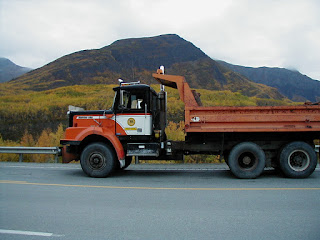World Studies: A Blueprint
Purpose: Building off of Civics, World Studies begins to explore the different regions of the globe, it's people and their history. Students are introduced to basic concepts of human geography, macroeconomics, and of course, making arguments about the past using secondary and primary sources.
Emphasis: I want to emphasize this course as World Studies, as opposed to World History for a number of reasons. First off, attempting to teach the entirety of World History in a year is hopeless. No matter what you include, there will always be crucial things you will miss out on. Second, geography is woefully underrepresented at the high school level, and this course provides the best general framework for studying the various regions of the world by exploring how their past has shaped their present.
Additionally, I want to expose students to as many different photos and videos (past and present) as I can throughout the year, of this planet and its distinct regions and countries so they can realize what lies out there to explore. The purpose of this is to inspire students to travel. I'd like to structure this by first asking students at the beginning of the year to list 4 or 5 countries they'd like to travel to if money were no issue, and then ask them again at the end of the semester with their reasons for, to see if a certain part of history or geography we explored in class inspired them to want to go there at some point in their lives.
Specifically, as a discipline, my World Studies classes will emphasize two ongoing considerations. The first is a demographic lens, specifically considering how migration and population have affected world events over time. For example, it my estimation it cannot be overstated enough that many of the social ills we currently face as a planet share a direct correlation with the fact that the earth's population has exponentially increased from roughly 1 billion in 1900 to 7.3 billion in 2017. It seems obvious, but you'd be surprised how many people overlook this when considering geopolitical change over the past century. Second, I will continually emphasize geopolitics as a battle for finite resources, particularly as it relates to the development of capitalism, the age of exploration and imperialism.
Additionally, I want to expose students to as many different photos and videos (past and present) as I can throughout the year, of this planet and its distinct regions and countries so they can realize what lies out there to explore. The purpose of this is to inspire students to travel. I'd like to structure this by first asking students at the beginning of the year to list 4 or 5 countries they'd like to travel to if money were no issue, and then ask them again at the end of the semester with their reasons for, to see if a certain part of history or geography we explored in class inspired them to want to go there at some point in their lives.
Specifically, as a discipline, my World Studies classes will emphasize two ongoing considerations. The first is a demographic lens, specifically considering how migration and population have affected world events over time. For example, it my estimation it cannot be overstated enough that many of the social ills we currently face as a planet share a direct correlation with the fact that the earth's population has exponentially increased from roughly 1 billion in 1900 to 7.3 billion in 2017. It seems obvious, but you'd be surprised how many people overlook this when considering geopolitical change over the past century. Second, I will continually emphasize geopolitics as a battle for finite resources, particularly as it relates to the development of capitalism, the age of exploration and imperialism.
A Tentative Mind-Map for World Studies
Challenges: Trying to cover too much, in too short a time. This seems inevitable.
Skills: Students should be able to understand the basic patterns of human migrations, the foundations of agriculture and the first civilizations, the development of ideas and technology over time, empire building and ideology. Students will continue to hone their debate skills and learn to translate them into effective and sound written arguments. Students will understand the difference between primary, secondary and tertiary sources, and how to detect credibility in arguments. Students will begin to develop an encompassing worldview.
Skills: Students should be able to understand the basic patterns of human migrations, the foundations of agriculture and the first civilizations, the development of ideas and technology over time, empire building and ideology. Students will continue to hone their debate skills and learn to translate them into effective and sound written arguments. Students will understand the difference between primary, secondary and tertiary sources, and how to detect credibility in arguments. Students will begin to develop an encompassing worldview.
Project Ideas: The first that jumps to mind is having a Google Earth workshop, so that students can learn how to effectively navigate the program for future use.





Comments
Post a Comment